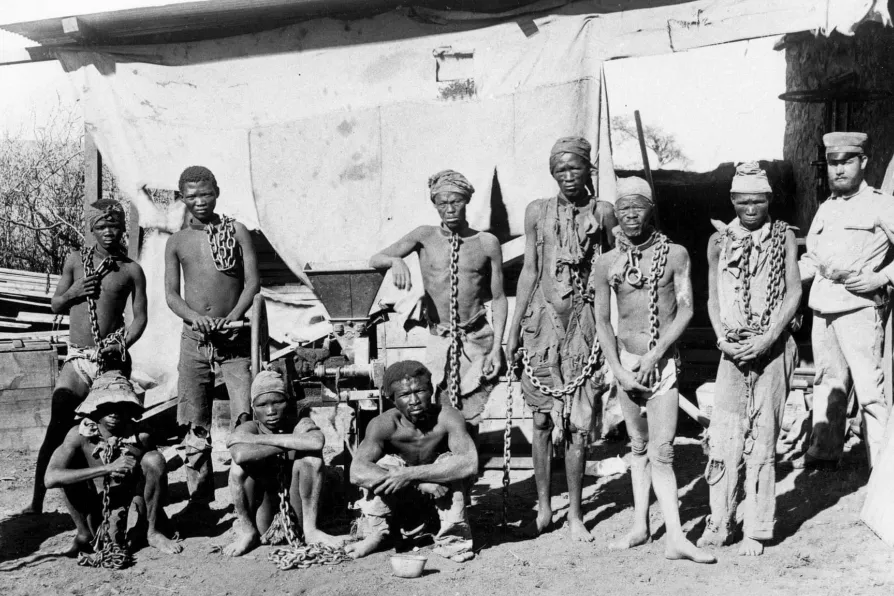John Wojcik pays tribute to a black US activist who spent six decades at the forefront of struggles for voting rights, economic justice and peace – reshaping US politics and inspiring movements worldwide

 Captured Herero and Nama prisoners circa 1904. The Germans massacred large numbers of the indigenous population: between 24,000-100,000 Hereros and 10,000 Nama were killed in the 20th century’s first genocide.
Captured Herero and Nama prisoners circa 1904. The Germans massacred large numbers of the indigenous population: between 24,000-100,000 Hereros and 10,000 Nama were killed in the 20th century’s first genocide.
IF WE think about the toxic colonial legacy of European countries, we invariably think of Britain, Spain, France or Belgium — but who knows anything about German colonialism? That will certainly be true for many, at least before they read the recent novel, After Lives by last year’s Nobel Prize winner, Tanzanian-born novelist Abdulrazak Gurnah, who highlights the brutality of German colonialism in Tanganyika.
Germany, just like other colonising nations, has scrupulously evaded examining its colonial past or attempting to come to terms with it.
Before its defeat in World War I, Germany held colonies in what today are 14 separate countries in Africa and among them was South-West Africa (present day Namibia). German South-West Africa had been a colony of the German empire from 1884 until 1915.

ROGER McKENZIE reports on the west African country, under its new anti-imperialist government, taking up the case for compensation for colonial-era massacres

MOLLY DHLAMINI welcomes a Pan-Africanist and Marxist manifesto that charts a path for Africa’s resurgence

JOHN GREEN observes how Berlin’s transformation from socialist aspiration to imperial nostalgia mirrors Germany’s dangerous trajectory under Chancellor Merz — a BlackRock millionaire and anti-communist preparing for a new war with Russia










